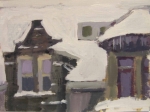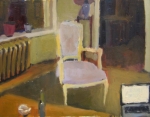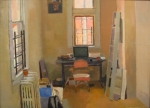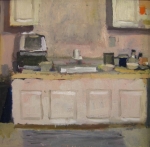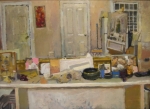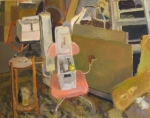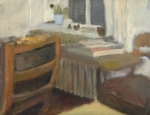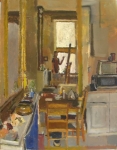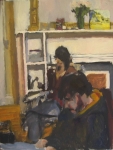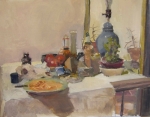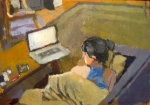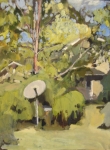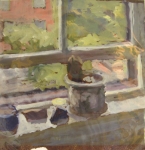JACOB STILLEY
In my work I do not hope to make a political or social statement. I treat interior spaces the same as landscape, leaving them as I find them, investigating the way things have been set down. I paint from life, applying paint quickly and directly without emphasis on mark or color. I avoid the urge to figure out what I’m doing, allowing myself to become consumed by the experience.
Show Full Bio
Hide Bio
In my work I do not hope to make a political or social statement. I treat interior spaces the same as landscape, leaving them as I find them, investigating the way things have been set down. I paint from life, applying paint quickly and directly without emphasis on mark or color. I avoid the urge to figure out what I’m doing, allowing myself to become consumed by the experience.
I am able to find a momentary peace amid my immediate surroundings through painting. Instead of having a predetermined idea about what I’m about to paint, I recognize things as they appear on the canvas.
The feeling evoked by a place is an acute thing, which has significant influence on the painting being made. It is a synthesis of all the components I see in front of me, each contributing to my emotional response. This effect can only be experienced when one is actually there, and can’t be reproduced by photographs or drawings. The feeling of a place is visceral and immediate, as well as time specific. The longer I spend somewhere, the more my surroundings change, and this adds another dimension to the quality of the finished painting.
Time plays an important role in the way a painting turns out, be it the time spent making or time in a larger sense, as in what year the work was made. When and where I am help to decide the elements that make up my composition, and because of this I believe my work is specific to history.
I would feel less compelled to make work in a world without other people. Art allows me to share a part of myself with others that I can’t put into words.
Hide Bio

